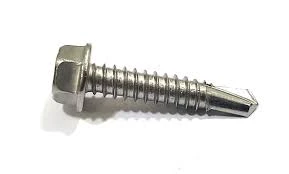types of foundation bolts
Types of Foundation Bolts A Comprehensive Guide
Foundation bolts are critical components in the construction and engineering industries, serving as anchors that secure structural elements to their foundations. The choice of foundation bolt type can significantly affect the durability and stability of a structure. In this article, we will explore various types of foundation bolts, their applications, and the considerations involved in selecting the appropriate type for specific projects.
1. Anchor Bolts
Anchor bolts are perhaps the most commonly used type of foundation bolt. These bolts are embedded in concrete and provide support for structural elements like steel columns and heavy machinery. They come in different shapes and sizes, but the most common configuration is the L or J shape, which helps prevent the bolt from pulling out of the concrete. Anchor bolts can be made of various materials, including carbon steel, stainless steel, and epoxy-coated steel to resist corrosion.
2. Epoxy Anchors
Epoxy anchors are specially designed bolts that utilize a two-part epoxy resin to bond with the surrounding concrete. This type of anchor is ideal for applications where traditional mechanical anchors may not provide sufficient holding power or where the concrete surface is compromised. Epoxy anchors are known for their high load-bearing capacity and resistance to environmental factors, making them suitable for both indoor and outdoor applications.
3. Cast-in-place Bolts
Cast-in-place bolts are set into the concrete during the pouring process. These bolts are designed to provide a secure anchoring point for structural elements right from the inception of a concrete structure. Their integration into the concrete increases load distribution and minimizes the risk of pull-out failures. Cast-in-place bolts are often used in the construction of buildings, bridges, and industrial facilities.
types of foundation bolts

Expansion anchors are secured to concrete by expanding against the inner walls of pre-drilled holes. As the bolt is tightened, the anchor body expands, creating a secure grip within the concrete. These are particularly useful in applications where a removable and adjustable anchoring system is needed. Expansion anchors are available in various designs, including sleeve anchors and wedge anchors, each offering different load capacities and installation methods.
5. Groutable Bolts
Groutable bolts, also known as grouted anchors, are installed within drilled holes in concrete and are then filled with a specialized grout. This provides a high-strength bond between the bolt and the concrete, often used in heavy-duty applications like wind turbines and large steel structures. Groutable bolts can accommodate significant loads and offer exceptional resistance to vibrations and shear forces.
6. Tie Rods and Straps
Tie rods and straps are used as foundation bolts in tension applications. These rods are typically used to stabilize structures and prevent lateral movement, particularly in retaining walls or bracing systems. They are available in various materials, including steel and synthetic composites, to suit different environmental conditions and load requirements.
Conclusion
In summary, selecting the appropriate type of foundation bolst is essential for ensuring the safety and longevity of a structure. Factors such as load requirements, environmental conditions, and specific application needs should guide the choice of foundation bolts. By understanding the various types of foundation bolts, engineers and builders can make informed decisions that enhance the stability and reliability of their projects, helping to support the infrastructure upon which society relies. Whether constructing commercial buildings, bridges, or industrial facilities, foundation bolts play an indispensable role in the safety and integrity of any structure.
-
Weatherproof Plastic Expansion Anchors for OutdoorNewsJun.06,2025
-
Sustainability in the Supply Chain: Eco-Friendly TEK Screws ProductionNewsJun.06,2025
-
Load-Bearing Capacity of External Insulation FixingsNewsJun.06,2025
-
Double Head Bolts: Enhancing Efficiency in Industrial MachineryNewsJun.06,2025
-
Corrosion Resistance in Chipboard Screws: Coatings for Wholesale DurabilityNewsJun.06,2025
-
Butterfly Toggle Bolts : Enhancing Structural ResilienceNewsJun.06,2025
